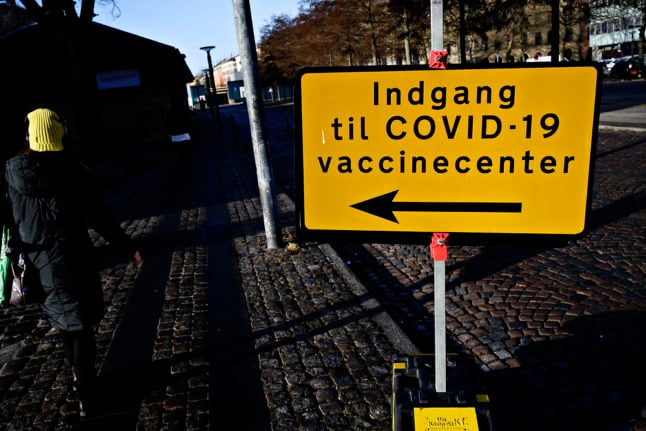The scheme is an effort to prevent unused vaccines being wasted and was confirmed by the Region Hovedstaden (Greater Copenhagen) health authority on Tuesday.
Anyone with an address in the region can register for the waiting list, regardless of whether they have received an invitation for vaccination through the regular programme.
READ ALSO: When and how can foreign residents get the Covid-19 vaccine in Denmark?
If you are unsure whether you live in the Hovedstaden/Greater Copenhagen region, check the yellow public health insurance car (sygesikringskort in Danish). It will show the logo of the health authority under which your address comes.
The Hovedstaden/Greater Copenhagen Region encompasses all of the capital city and its environs along with northeastern Zealand, as well as Baltic Sea island Bornholm.
On average, 1-5 vaccines daily are left over at one of the region’s large vaccination centres, and large numbers of people are registering for the waiting list, according to the Region – so the chance of being offered vaccination through the route is not high.
You can register for the excess vaccines using the form on the regionh.dk website under the heading Tilmeld dig dagens liste (register for the daily list). Click the button marked ‘Tilmed dig dagens liste’ to register.
Registration is only valid for one day at a time, so you must re-register on each day you wish to be considered. You must also complete registration between midnight and 1:30pm on the relevant day.
The scheme is not intended for people who have already received a first dose of the virus.
As with the regular vaccination programme, older people will be given higher priority for the leftover vaccines.
Staff for the region will call you if you can be offered vaccination on a given day. The calls are likely to be made between 5pm and 8pm, but this can vary. You must be able to get to the vaccination centre within 30 minutes of receiving the call.
The region has decided to open its vaccine waiting list to all residents to “ensure that no vaccines are wasted” with deliveries and flow at vaccination centres speeding up, the health authority’s interim deputy director Helene Bliddal Døssing said in a statement.
“We hope more people will register for the waiting list when it is extended. Being on the waiting list is a chance to move forward in the queue, but it is no guarantee of being vaccinated, because only a few vaccines are left over,” she added.



 Please whitelist us to continue reading.
Please whitelist us to continue reading.
Hi Guys
I have already had the 1st vaccine in the uk but how do i go about getting the second one here